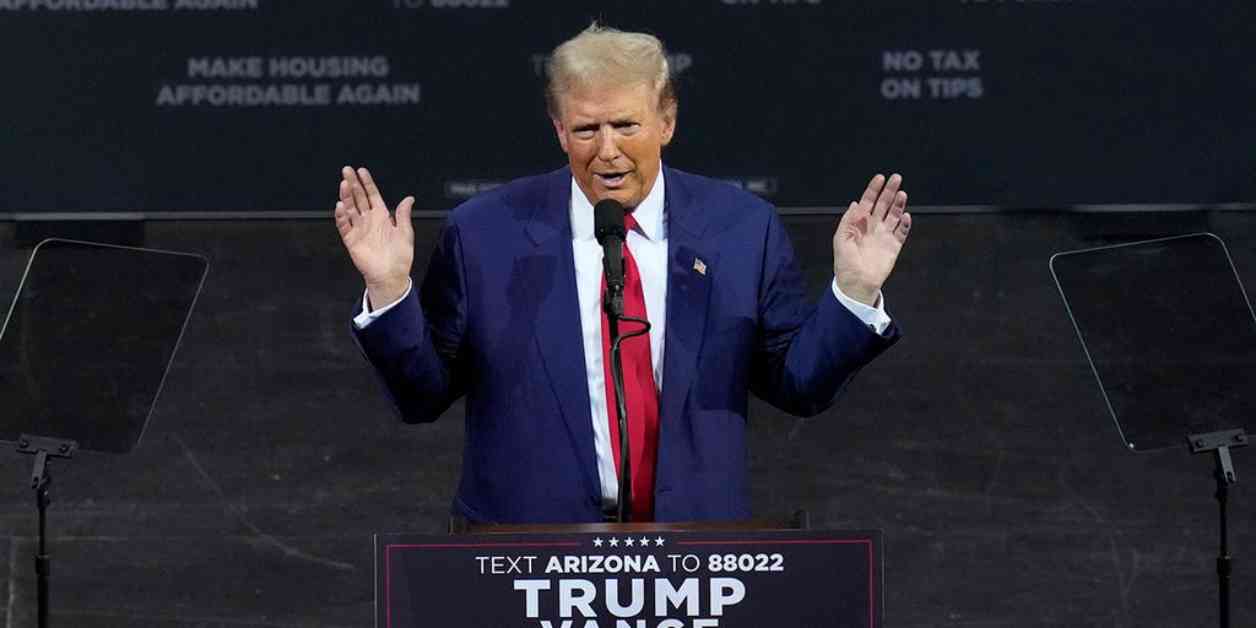Former President Trump made a bold promise during a recent campaign event in Tucson, Arizona – to end taxation on overtime pay. This announcement comes as part of a series of proposed cuts aimed at putting more money back into the pockets of American workers. Trump emphasized the importance of recognizing the hard work and dedication of those who put in extra hours to make ends meet, such as police officers, nurses, factory workers, construction workers, truck drivers, and machine operators.
Trump’s Plan to Boost Workers’ Income
During his speech, Trump highlighted the significance of incentivizing overtime work by eliminating taxes on those additional hours. He argued that this move would not only benefit the workers themselves but also provide a boost to companies that rely on their dedication and commitment. By allowing individuals to keep more of their hard-earned money, Trump believes that it will create a more favorable environment for both employees and employers.
The former President’s proposal to end taxation on overtime pay is part of a broader initiative to increase disposable income for American workers. In addition to this, Trump has also promised to eliminate taxes on Social Security benefits and tips for service workers. These pledges are intended to address the financial challenges faced by many working-class Americans and provide them with much-needed relief in the form of tax breaks.
Trump’s Vision for a Brighter Future
Trump’s message resonated with the crowd in Tucson, as he outlined his vision for a future where hard work is rewarded and individuals are given the opportunity to thrive. By removing barriers to financial stability, such as high taxes on overtime pay and other forms of income, Trump aims to create a more equitable society where everyone has the chance to succeed.
The former President’s commitment to supporting workers and their families is reflected in his proposal to raise the minimum wage. By advocating for an increase in the minimum wage, Trump hopes to address the issue of income inequality and ensure that all Americans are able to earn a fair and livable wage. This move is seen as a step towards promoting economic growth and stability for working-class families across the country.
Critics’ Concerns and Budget Implications
While Trump’s proposals have been met with enthusiasm by his supporters, critics have raised concerns about the potential impact on the nation’s deficits. The Committee for a Responsible Federal Budget estimated that eliminating taxes on tip income, increasing the minimum wage, and ending taxation on overtime pay could add between $100 billion and $200 billion to the deficits over a 10-year period.
Despite these concerns, Trump remains steadfast in his commitment to supporting American workers and providing them with the financial relief they deserve. By prioritizing the needs of working-class families and addressing the challenges they face, Trump hopes to create a more prosperous and equitable society for all.
In conclusion, Trump’s pledge to end taxation on overtime pay is a significant step towards empowering American workers and ensuring that their hard work is recognized and rewarded. By providing tax breaks and other forms of financial relief, Trump aims to create a more favorable environment for working-class families to thrive and succeed. It remains to be seen how these proposals will be implemented and what impact they will have on the nation’s economy, but one thing is clear – Trump’s vision for a brighter future for American workers is one that resonates with many across the country.




